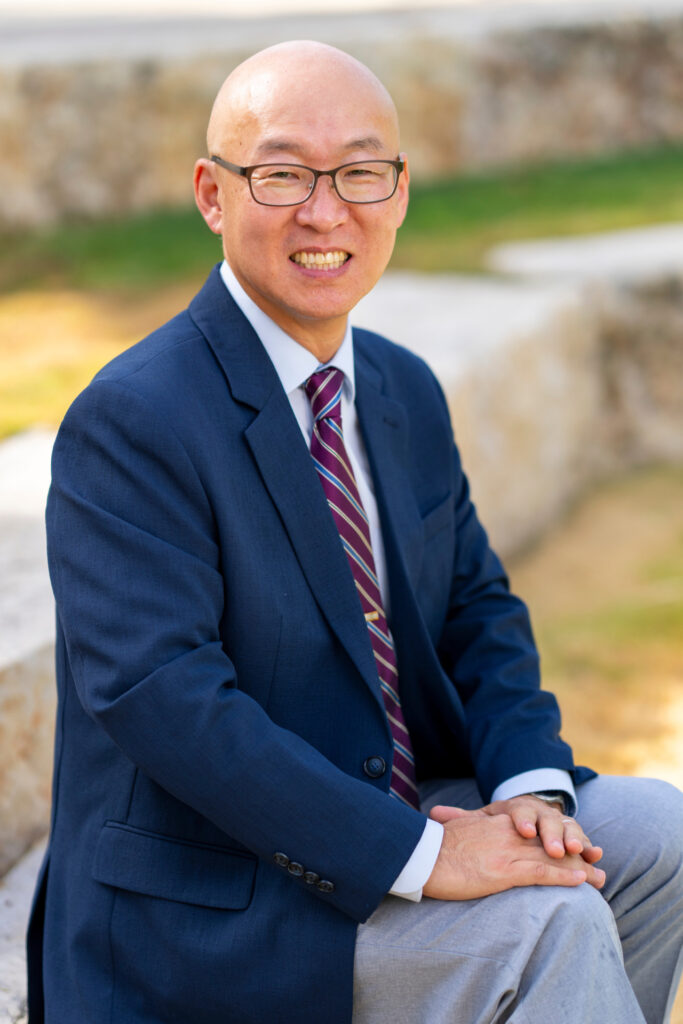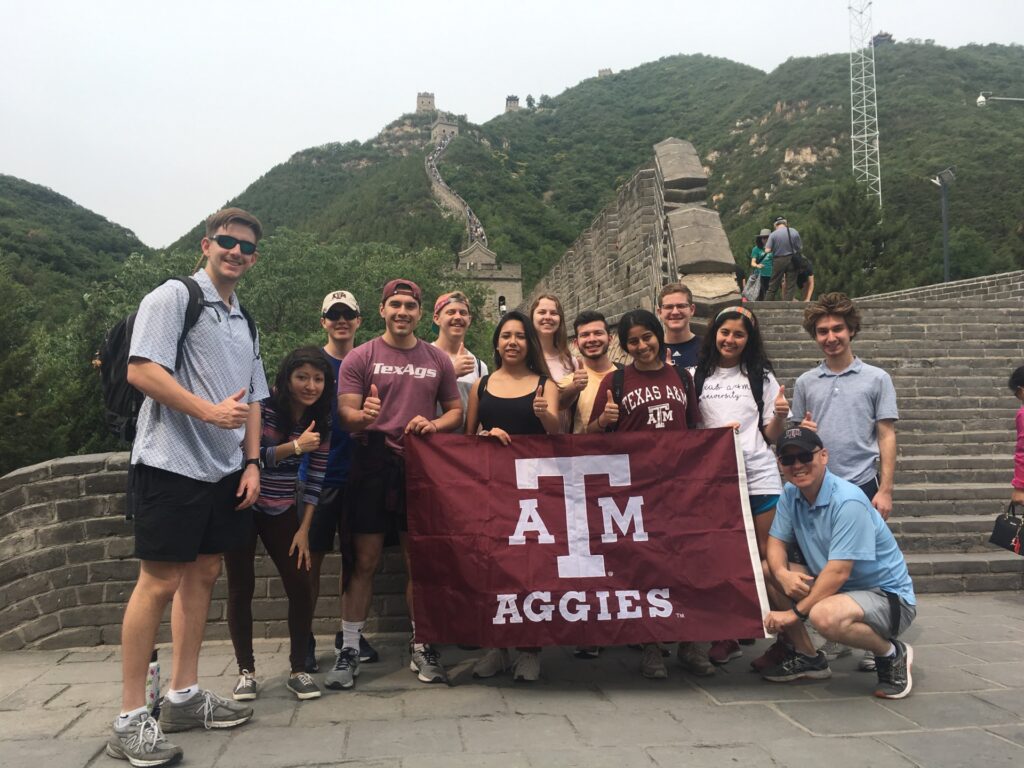Shim named head of Department of Plant Pathology and Microbiology
Collaborative leadership to advance plant and environmental health
After a nationwide search, Won Bo Shim, Ph.D., has been named head of the Department of Plant Pathology and Microbiology in the Texas A&M College of Agriculture and Life Sciences, effective Sept. 1.

Shim has served as the interim head of the department for the past year, and before that was the department’s associate head for academic affairs as well as associate head for the graduate program.
“I am humbled and excited to have this opportunity to lead the department,” Shim said. “I will work tirelessly to facilitate ways and means for faculty, staff and students to achieve excellence. From research to extension to teaching, we must equip ourselves as well as the next generation of students and scholars to solve current and emerging challenges.”
Jeffrey W. Savell, Ph.D., vice chancellor and dean for Agriculture and Life Sciences, said Shim’s record of leadership in teaching and establishing research partnerships will advance the department’s innovation and impact.
“Dr. Shim’s experience in multidisciplinary, multinational collaboration will advance this department’s graduate and undergraduate programs,” Savell said. “His passion for education, research and extension outreach will benefit Texans and stakeholders worldwide.”
Healthy plants, healthy planet and healthy people
Shim describes the department as “a top-notch, high-tech scientific department making a difference in the world,” adding that the department’s motto, “healthy plants, healthy planet and healthy people,” summarizes its mission.
“Our work impacts society’s ability to feed the world, protect the environment and improve health by excelling in plant pathology, plant microbiology and bioenvironmental sciences,” Shim said. “Through science and education, we prepare citizens to improve these goals with knowledge relevant to plant health, food safety and environmental health.”
He said helping an increasingly urban population better understand plant pathology and agricultural science is a priority.
“Exciting things are happening here, and we need to share our story,” he said. “People don’t usually relate plant pathology with high-technology science, but we’re doing plant and microbial genetics, genome editing, microbiome, climate-smart systems, data science, biofuels and bioplastics. We need to let people know the future is here.”
Preparing next-generation scholars and scientists with experiential learning, training
Shim said the department’s undergraduate program, bioenvironmental sciences, “provides tremendous opportunities for our teaching mission and expands our research capacity.” Most students are from urban areas and are interested in STEM disciplines, especially environmental science fields. Many bioenvironmental sciences students pursue environmental professional career paths, while others become interested in graduate-level research or careers with Texas A&M AgriLife Research and the Texas A&M AgriLife Extension Service.
Providing undergraduates with hands-on research training and experiential learning is imperative to help them explore career options and ensure they are the best-qualified candidates for whatever path they take, Shim said.
For example, this summer, the department hosted its first cohort of 14 students from Texas A&M and other partner universities to participate in a 10-week research/extension experience. Funded by a U.S. Department of Agriculture – National Institute of Food and Agriculture, USDA-NIFA, Research and Extension Experiences for Undergraduates Program, students worked with faculty and gained hands-on laboratory research experience.
Furthermore, providing exceptional graduate student and post-doctoral training will continue to be a strong emphasis in the department. Shim said graduate student, post-doctoral and visiting scholar mentoring is one of academia’s most challenging and rewarding activities.
“It is a continuous and demanding journey in which young scientists are trained and equipped with a higher order of critical thinking skills and the ability to conduct independent research that prepares them for careers that make a difference,” Shim said.
Global perspective and impact

For seven years, Shim has co-led a study abroad program that gives undergraduate students high-impact learning opportunities to gain international perspectives on how environmental issues impact the U.S. and China. Since more private- and public-sector employers are expanding their global business settings, study abroad experience can enhance future career opportunities, Shim said.
Many challenges in agriculture and science are global.
“We need, as scholars and also in training our students, to embrace a global perspective,” Shim said. “This will require positioning ourselves as a premier plant pathology and microbiology department ready to collaborate with scientists from multiple disciplines and international locations to make the greatest impact in research, education and extension.”
Multifaceted career in research, teaching, mentoring
Shim’s research has focused on fungal pathogens of field crops such as corn, cotton and watermelon, with projects funded by the USDA-NIFA, the National Science Foundation and other extramural funds. He has also developed multidisciplinary collaborations with colleagues at Texas A&M and other institutions worldwide to explore innovative projects, such as finding solutions to remediate environmental waste.
He is a teacher and mentor for graduate and undergraduate courses in plant pathology and bioenvironmental sciences and enriches his classes with high-impact experiential learning opportunities such as peer interviews, open-technology classrooms, undergraduate research and study abroad courses. In 2021, he was awarded the Dean’s Outstanding Achievement Award in Educational Enrichment and Innovation.
From Seoul to Aggieland
Shim earned his bachelor’s in agricultural biology and master’s in plant pathology from Seoul National University, Korea, and his doctorate in plant pathology from Purdue University. Before joining the Texas A&M faculty, he conducted post-doctoral research with the USDA-Agricultural Research Service.
Like many of his students in bioenvironmental sciences, Shim did not have an agricultural background.
“Being from Seoul, I’m one of those urban students who seldom experienced agriculture growing up,” he said.
As a high school and undergraduate student interested in microbiology, he said he was fascinated by how some microorganisms can attack plants and cause global disease epidemics. His interest in plant pathology continued to grow. After completing his master’s, he still had a compelling desire to learn more, bringing him to Purdue and then to Texas A&M, 20 years ago.
He said his career at Texas A&M has been a great experience for him and his family – he is the proud father of two Aggies.
“I have tremendous faith in Texas A&M and the exciting future of this department. It may sound cliché, but it’s the people — the fellow professors, staff and students, who welcomed me and helped me build my curriculum and research program so I could succeed,” said Shim.
Later, as associate department head, helping enable his colleagues to succeed is what he enjoyed most.
“One of my key roles as department head will be to serve as a facilitator so that faculty, staff and students can strive for excellence in everything they do, continuing innovation in our scholarly endeavors to make ‘healthy plants, healthy planet and healthy people’ possible.”


